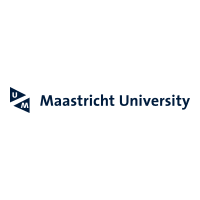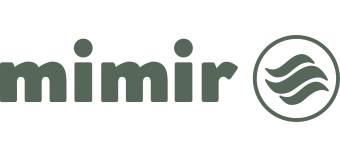
Vacatures geplaatst door Maastricht University
Mimir verzorgt het geautomatiseerde beheer van vacatures op vacaturebanken voor Maastricht University.
Laatste vacatures
Senior-salarisadministrateur
Welkom bij de Universiteit Maastricht!
Vindt je het belangrijk om in een dynamische omgeving te werken en lijkt het je leuk om je met jouw financiële kennis in te zetten voor een efficiënte en innovatieve salarisadministratie. Solliciteer dan nu op onderstaande vacature!
AcademicTransfer
0 sollicitaties
0 views
27-02-2026 Maastricht University
Management/Office Assistant Huisartsopleiding Eindhoven
Welkom bij de Universiteit Maastricht!
Vind jij het leuk om te werken in een dynamische omgeving waar onderwijs en praktijk samenkomen en je bijdraagt aan het opleiden van de huisartsen voor jouw regio?
AcademicTransfer
1 sollicitatie
0 views
25-02-2026 Maastricht University
Psychiater/Universitair Docent in het Topklinisch Centrum Transitiepsychiatrie van UM en Mondriaan
Welkom bij de Universiteit Maastricht!
Wil jij werken aan baanbrekend onderzoek dat écht het verschil maakt voor jongeren met complexe psychische problemen? Ben je een sterke netwerker én weet je een team mee te nemen in een gezamenlijke ambitie? Dan is dit jouw kans om impact te maken binnen een toonaangevende centrum.
AcademicTransfer
1 sollicitatie
0 views
25-02-2026 Maastricht University
PhD Position in Econometrics, Operations Research and/or Social Choice
PhD Position in Econometrics, Operations Research and/or Social Choice
- Our goal: To develop boundary-pushing research with meaningful societal impact.
- Your colleagues: An international and interdisciplinary team within the School of Business and Economics in the area of Actuarial Sciences, Econometrics, Mathematical Economics and Game Theory, Machine Learning and Operations Research.
Within the School of Business and Economics (SBE) at Maastricht University (UM), we are looking for a PhD candidate who wants to contribute to innovative research in Econometrics, Operations Research and/or Social Choice. You will join one of two projects, both positioned at the intersection of theory, data, and societal application.
In the first project, you will work on data-driven decision-making in modern operations. Many organizations rely on both prediction and optimization to make complex decisions – from hospital resource planning to energy management. In this PhD project, you will develop new methods that closely integrate predictive models with (heuristic-enhanced) optimization techniques. You will train machine learning models with the final optimization problem in mind, ensuring transparency and explainability in decision support. You will collaborate with real-world partners, including a university hospital, last-mile logistics providers, and energy companies.
The second project focuses on participatory budgeting: a democratic innovation that enables citizens to decide how public budgets are spent. You will combine insights from combinatorial optimization and computational social choice to develop theoretical results on fairness and incentive compatibility. In collaboration with participatory budgeting initiatives in the city of Maastricht, you will translate these insights into concrete policy recommendations.
The PhD position is within the Department of Quantitative Economics, details on the department can be found here: https://www.maastrichtuniversity.nl/research/department-quantitative-economics.
Our department hosts a vibrant, culturally diverse PhD community and warmly welcomes enthusiastic and talented new PhD candidates.
Are you analytically strong, curious, and motivated to connect theory with practice? We would love to meet you.
What you bring
It’s not about ticking boxes – it’s about who you are and what you bring. Do you recognize yourself in this profile?
- Analytical and curious – You enjoy exploring complex problems and developing solutions that truly matter.
- Strong in modeling and programming – You preferably work with Python, Julia, Java, or C++, and translate theory into code with ease.
- Methodologically driven – You hold (or are close to completing) a Master’s degree in Operations Research, Econometrics, (Applied) Mathematics, Computer Science, Engineering, or a related field, with excellent results.
- Collaborative by nature – You enjoy working with colleagues from different disciplines as well as external partners.
- Independent and proactive – You take initiative and shape your own research development.
- Fluent in English – You communicate clearly and confidently in writing and speaking within an international academic environment.
The starting date is negotiable, but we aim to fill the position before September 2026.
AcademicTransfer
26 sollicitaties
0 views
24-02-2026 Maastricht University
Universitair Docent Kind & Jeugd Psychologie
AcademicTransfer
7 sollicitaties
0 views
23-02-2026 Maastricht University


